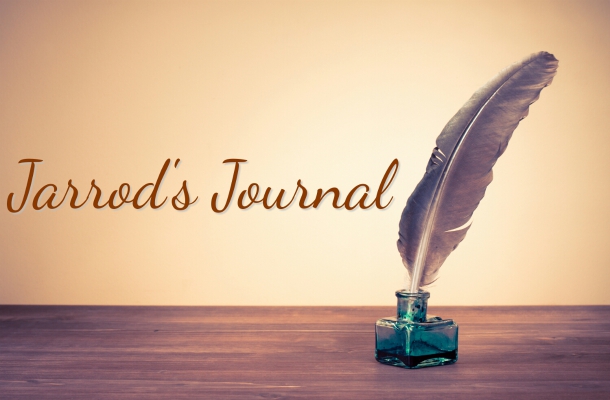I’ve begun work on a science fiction novel and the progress is coming along well. I’ve gotten into a groove where I’m writing every day, and unlike the project that’s now on hold, the story still feels fresh every time I sit down to write. Some of the tools I’m using to write have changed and I’m finding that I like it much better. To be specific, the tool I’ve begun using is Scrivener.
How I Came to Use Scrivener
I wrote my last book, Pangaea: Unsettled Land, entirely using Google Docs. This was because I had a Chromebook. Now, while it behaves very similarly to Microsoft Word, and even allows you to export into that file type, it is not the same. After exporting the file into a Word doc, I noticed that the amount of pages were different and there were some weird page break placements. Also, I realized had I used MS Word from the start, I wouldn’t have had to change short hyphens to the longer dashes used for dialogue interruptions. These aren’t automatically changed in Google Doc, so I had to find each one and change it manually. Not only that, but when I started to format it for a print edition of the book, there were so many little changes I had to make in order for it to look right. I had manually done things like hitting the ‘tab’ button to indent the first line of new paragraphs and hitting ‘enter’ multiple time after each chapter heading before writing. Formatting became a nightmare, but through this process, I also learned that Microsoft Word wasn’t really sufficient either. I knew that I’d need something else if I didn’t want the hassle.
Being amongst writers online, you tend to hear of a few specific ideas again and again. One of them was to use Scrivener. This is a program that was made for book writers that will automatically compile your completed document into a print-ready format. I wanted to use this program for a while now, but there’s no online version so I couldn’t use it on my Chromebook. So I finally bought a new laptop last week, installed Scrivener, and so far I’m very happy.
As of right now, I have not gotten to the point of compiling a print version of anything because I am still in the process of writing this book. However, there are a few features that I am enjoying very much. Scrivener allows you to break down chapters and scenes into small chunks. You can change this if you want, but I really like the way it’s laid out. This also allows you to set a writing goal and it will track your progress every day. You can easily see how many words you write in any given session as well. Now, whether the final product looks the way I want it to, remains to be seen, but I am hopeful. If not, I can always have it formatted by a professional.
Dragon Software
Scrivener wasn’t the only reason I bought a new laptop. Another thing I kept hearing of, thanks mostly to Joanna Penn’s podcast, The Creative Penn, was Dragon dictation. This is a program that some authors use to speak their story into existence! The general idea is to speak directly into the Dragon software or record your voice and then import the audio into text using the program’s transcription option. There have been cases of writers, like me, who struggle to get to 1000 words a day, but have quadrupled their output. After hearing this, I knew I had to give this a shot.
I first listened to the audio book version of Scott Baker’s The Writer’s Guide to Training Your Dragon to see what hardware was necessary to run this program the best. I already had a good mic, so the computer was next. Using the information in this book, I purchased the laptop I’m using now. Now, I haven’t yet bought the Dragon software, because the version I need is expensive. However, when I get it, I plan to jump in and learn what I need so that I can start completing books more frequently.
Things are evolving and my new laptop and Scrivener are great investments. I’m looking forward to trying out Dragon and getting even more stories out to you.
